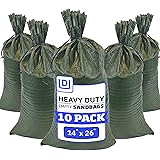Understanding Economic Uncertainty
Defining Economic Uncertainty
Let’s be real for a second; economic uncertainty is something that can throw anyone into a tizzy. It includes those pesky fluctuations in the market, job stability worries, and the unexpected nature of global events. I mean, nobody could predict a pandemic, right? Understanding what economic uncertainty really means is the first step toward creating a robust plan for it.
In my experience, economic uncertainty can emerge from a range of factors including political unrest, technological shifts, and unexpected global crises. Each one can send shockwaves through the economy, and knowing that they exist is half the battle. It’s like trying to navigate through a foggy road; you gotta have your headlights on!
So why is it important to grasp the concept of economic uncertainty? Well, for starters, it helps you stay ahead of the game. By understanding what uncertainties might be looming, you can better prepare yourself, whether it’s for business decisions or personal finances. Get in tune with the factors that affect your financial life, and you’ll be better positioned to tackle whatever comes your way.
Analyzing Your Financial Situation
Taking Inventory of Your Assets
The first thing I always do when thinking about my finances is to take a good hard look at my assets. This includes everything from savings accounts to stocks, and even those little bits of jewelry that I’ve collected over the years. By knowing what I have, I can establish a baseline that I can plan around.
It feels a bit like spring cleaning, minus the dust! I usually categorize my assets into immediate liquid assets and those that might take longer to convert to cash. This helps in understanding quick access to funds when uncertainty strikes.
Remember, it’s also really important to factor in liabilities as well; what do you owe compared to what you own? Balancing that equation can lead to a really clear picture of where you stand financially. Understanding if you have enough cushion can relieve a ton of stress!
Creating a Financial Strategy
Establishing an Emergency Fund
Alright, let’s talk about emergency funds! This is the golden rule of financial planning that I swear by. It’s not just about saving up for a rainy day—it’s about preparing for unexpected storms. I always aim to have at least three to six months’ worth of living expenses tucked away. Trust me; this cushion can save you from a ton of anxiety.
Starting an emergency fund may feel daunting, but it can truly be made manageable. I recommend setting up a separate savings account specifically for this purpose. Automate your savings so that a portion of your paycheck goes straight to that account every month. You’ll be surprised how quickly it grows without you even noticing!
== > What if ... Get a FREE Subscription to PREPARE
In times of economic uncertainty, having this fund can give you the freedom to breathe and make decisions without the constant worry of what if. This way, you’re not forced to liquidate your investments to cover immediate expenses, which can lead to financial loss in the long run.
Diverse Investments
Spreading Out Your Risks
You’ve probably heard the saying, “don’t put all your eggs in one basket.” That’s especially true when it comes to investing. In my personal experience, having a diversified portfolio has helped me weather many financial storms. This means investing in a mix of stocks, bonds, real estate, and maybe even some collectibles!
Why is diversification so crucial? Well, different assets typically react differently under economic pressure. For instance, while stocks might slump during a recession, gold or real estate could stay steady. By spreading out my investments, I decrease the risk of a catastrophic loss. There’s comfort in knowing that if one investment falters, others might still hold their ground.
Plus, keeping an eye on market trends and adjusting my investments accordingly has made all the difference. I try to remain informed and flexible, reacting to changes rather than sticking rigidly to a plan that might no longer suit my needs.
Regular Re-evaluation of Your Plan
Checking In on Your Financial Health
Having a plan isn’t a one-and-done deal; it’s a living document that requires periodic check-ins. Every six months or so, I sit down and assess my financial health, looking for any shifts in the market or my personal situation. What’s working? What’s not? This helps me fine-tune my strategy and stay adaptable in the face of ongoing uncertainty.
It’s super important to stay proactive rather than reactive. When I make a habit of reviewing and adjusting my plans, I feel more in control. Life has a funny way of throwing curveballs at you, and if you’re not regularly reviewing your plan, you might get caught off guard.
Additionally, keep an eye on your goals. As life changes—like getting a new job, buying a home, or starting a family—your financial goals might shift too. Being able to navigate these changes will help you remain resilient against economic uncertainties.
Frequently Asked Questions
1. Why is it important to have a plan for economic uncertainty?
Having a plan allows you to prepare for potential financial challenges, giving you peace of mind during unpredictable times. It helps you make informed decisions that can safeguard your financial well-being.
2. What should I include in my financial strategy?
Your strategy should include an emergency fund, diversification of investments, and regular assessments of your financial health. Each of these elements plays a vital role in building resilience against economic shocks.
3. How can I start building an emergency fund?
Begin by calculating your monthly living expenses and aim to save three to six months’ worth of those expenses. Set up a separate savings account and automate contributions to make saving easier.
4. What does it mean to diversify investments?
Diversifying investments means spreading your money across various asset classes, such as stocks, bonds, and real estate, to reduce risk. This way, if one investment declines, you won’t lose everything.
5. How often should I review my financial plan?
I recommend reviewing your financial plan at least every six months. This helps you stay updated on your financial health and adjust your strategies as needed based on changes in your circumstances or the economy.






